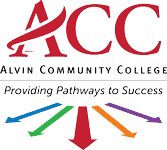Nursing (ADN)/Nursing Transition (LVN to ADN)
Frequently Asked Questions
There is no paper application form; you must apply online at the ADN web page. Please see the ADN web page for application dates. You must be admitted to ACC before you can apply to ADN. If you are not already admitted to ACC, click here to apply to ACC.
The 2-year ADN programs begin every August and January. The one-year LVN-to-ADN Transition program begins every Summer semester.
Please see the ADN admission requirements in the current ACC catalog and ADN application instructions. All ADN applicants must meet minimum admission requirements for both the COLLEGE and the ADN PROGRAM to be eligible for consideration for acceptance into an ADN program.
Admission is competitive. After the application deadline, applicants are ranked primarily according to the number of completed courses in the ADN curriculum, the GPA of those courses (GPA must be at least 3.0), and HESI A2 test scores (see minimum scores above). Priority admission is given to applicants who: 1) achieve high HESI A2 scores; 2) have a high grade point average in ADN curriculum academic coursework; and 3) completed, or are in progress in, BIOL-2420. Additional consideration is given to applicants who: 1) complete ADN curriculum courses without repeating or withdrawing from courses in the last five years from the application deadline; 2) complete ADN curriculum courses at ACC; 3) hold a Bachelor’s or higher degree from an accredited college or university; 4) hold a current certification or license in a healthcare or veterinary related occupation; and, 5) reside in the ACC tax district.
To get a high ranking, you should have a high GPA in as many ADN curriculum courses as possible, and achieve high HESI-A2 scores. We do not count grades of courses that are not part of the ADN curriculum. Admission is very competitive, and students accepted into the program usually have completed many ADN curriculum courses with an A or B+ average and have HESI scores significantly higher than the required minimum scores.
The student must be in good health and not pose a threat to the health and safety of themselves or others. For more details, see section “ADA and Performance Requirements” in the ADN Student Handbook on the ADN web page. After an applicant is accepted into the program, they must undergo a physical examination and submit a completed and signed “Statement of Fitness” form to the nursing office.
You must turn in proof of at least your first two Hepatitis-B shots or proof of Hep-B immunity by the nursing application deadline. There is no time limit on Hepatitis-B shots; childhood Hep-B shot record is acceptable. There is a 5-year time limit on the Hep-B immunity report. You will be told of other immunizations and medical tests to turn in only if you are accepted into a nursing program. All students must submit Hep-B immunity report (called a Hep-B titer) by the end of their first semester in the program.
Yes! If you have a history of criminal, psychiatric, or substance abuse events, the “Background Checks” page in the ADN application packet will tell you what to do. Applicants who are convicted of a felony, appealing a felony conviction, have a deferred adjudication felony, or on parole for a felony, are not eligible for admission to Alvin Community College nursing programs. "Conviction” is defined in Texas Administrative Code Chapter 213, RULE §213.1, #12
COLLEGE & CAREER PATHWAYS
Associate Degree Nursing is part of our Health Career Pathway. Click the box below to see other Health programs that may interest you.

